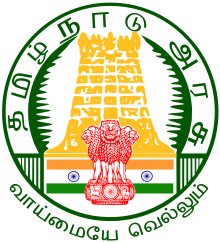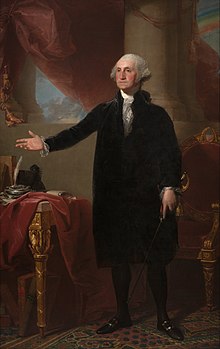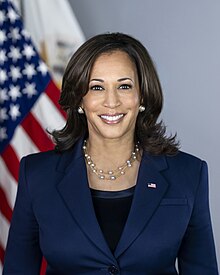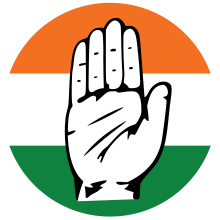Portal:Politics
| Main | Topics and categories | Tasks and projects |
The Politics portal
Politics (from Ancient Greek πολιτικά (politiká) 'affairs of the cities') is the set of activities that are associated with making decisions in groups, or other forms of power relations among individuals, such as the distribution of resources or status. The branch of social science that studies politics and government is referred to as political science.
It may be used positively in the context of a "political solution" which is compromising and non-violent, or descriptively as "the art or science of government", but also often carries a negative connotation. The concept has been defined in various ways, and different approaches have fundamentally differing views on whether it should be used extensively or in a limited way, empirically or normatively, and on whether conflict or co-operation is more essential to it.
A variety of methods are deployed in politics, which include promoting one's own political views among people, negotiation with other political subjects, making laws, and exercising internal and external force, including warfare against adversaries. Politics is exercised on a wide range of social levels, from clans and tribes of traditional societies, through modern local governments, companies and institutions up to sovereign states, to the international level.
In modern nation states, people often form political parties to represent their ideas. Members of a party often agree to take the same position on many issues and agree to support the same changes to law and the same leaders. An election is usually a competition between different parties.
A political system is a framework which defines acceptable political methods within a society. The history of political thought can be traced back to early antiquity, with seminal works such as Plato's Republic, Aristotle's Politics, Confucius's political manuscripts and Chanakya's Arthashastra. (Full article...)
Selected article

The women's poll tax repeal movement was a movement in the United States, predominantly led by women, that attempted to secure the abolition of poll taxes as a prerequisite for voting in the Southern states. The movement began shortly after the ratification in 1920 of the Nineteenth Amendment to the United States Constitution, which granted suffrage to women. Before obtaining the right to vote, women were not obliged to pay the tax, but shortly after the Nineteenth Amendment became law, Southern states began examining how poll tax statutes could be applied to women. For example, North and South Carolina exempted women from payment of the tax, while Georgia did not require women to pay it unless they registered to vote. In other Southern states, the tax was due cumulatively for each year someone had been eligible to vote.
Featured picture

Parliament House is the meeting facility of the Parliament of Australia located in Canberra, the capital of Australia. The building was designed by Mitchell/Giurgola Architects and opened on 9 May 1988 by Elizabeth II, Queen of Australia. At the time of the construction, it was the most expensive building in the world at more than A$1.1 billion.
Selected quote
Selected biography
Margaret Thatcher (1925–2013) was a British politician and the first female Prime Minister of the United Kingdom, a position she held from 1979 to 1990. She was a member of the Conservative Party and the figurehead of a political ideology known as Thatcherism. Even before coming to power she was nicknamed The Iron Lady in Soviet propaganda, an appellation which stuck. The changes she set in motion between coming to power and 1985 were profound, and altered much of the economic, cultural and commercial landscape of Britain and, by example, the world as a whole. Along the way she also aimed to roll back the welfare state, or "nanny state", as she termed it. Her popularity finally declined when she replaced the unpopular local government rates tax with the even less popular Community Charge. At the same time the Conservative Party began to split over her sceptical approach to Economic and Monetary Union of the European Union. Her leadership was challenged from within and she was forced to resign in 1990, her loss at least partly due to inadequate advice and campaigning.
Did you know (auto-generated) -

- ... that María Elva Pinckert, motivated by the murder of her brother, started her political career in local politics in 1999?
- ... that after its merger with India, the last raja of Jubbal State joined the Indian Foreign Service?
- ... that Matt Stoller believes that "nearly any other cause or political relationship should be sacrificed" to break up monopolies?
- ... that Czech television reporter and author Vladimír Škutina was arrested and imprisoned twice for his use of political satire?
- ... that Valentina Bodrug-Lungu has declared that Moldova's political climate does not encourage female participation, despite having a woman president?
- ... that following the Russian invasion of Ukraine, a diverse group of exiled Russian public figures formed the Anti-War Committee of Russia to unite different political movements to oppose the war?
More did you know...
- ...that the traditional form of government in Tibet from 1642 to 1951 was the Cho-sid-nyi?
- ...that the Zimbabwe Human Rights NGO Forum recorded over 1,200 violations of human rights in Zimbabwe by the law enforcement agencies from 2001 to September 2006?
- ...that the ideology of the Romanian National Renaissance Front has been described as "operetta fascism"?
- ...that in the 1984 Brown v. Hotel and Restaurant Employees case, the U.S. Supreme Court upheld a New Jersey gaming law requiring union leaders to be of good moral character?
- ...that Caedwalla of Wessex conquered southeast England during his brief 7th century reign?
- ...that the controversial Iraq De-Ba'athification policy banned anyone affiliated with the Ba'ath Party from working in the public sector?
In this month
- June 28, 2004 - Canadian federal elections occur; the Liberal party loses its absolute majority.
News and Current events
- August 11: 4 local government areas in New South Wales, Australia locked down after COVID-19 case
- August 11: Australia: AstraZeneca vaccine access expanded by Victorian government
- August 1: Australia: Victorian lockdown lifted
- July 29: Tunisia's president dismisses prime minister, suspends parliament
- July 25: Australia: Wikinews interviews Reg Kidd, mayor of the City of Orange, about COVID-19 lockdown and local government
- July 23: South Australia enters week-long lockdown to contain COVID-19 Delta variant spread
- July 21: Technological University Dublin senior lecturer Dr Lorcan Sirr speaks to Wikinews on housing market in Ireland
- July 21: Three rural councils in New South Wales, Australia enter 7-day lockdown
- July 21: Australia: Victoria lockdown extended by a week with 85 active cases recorded
- July 15: California governor signs new state budget, eligible Californians to get stimulus payments
Topics and categories
General images
Related portals
Associated Wikimedia
The following Wikimedia Foundation sister projects provide more on this subject:
-
Commons
Free media repository -
Wikibooks
Free textbooks and manuals -
Wikidata
Free knowledge base -
Wikinews
Free-content news -
Wikiquote
Collection of quotations -
Wikisource
Free-content library -
Wikiversity
Free learning tools -
Wiktionary
Dictionary and thesaurus



























































